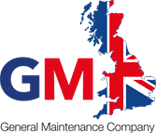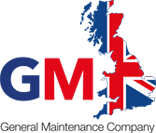WHAT IS LEGIONELLA?
Legionella pneumophila is a bacterium that lives and breeds in water that if contracted can have very serious – even fatal – health implications for humans. Fortunately, most people exposed to Legionella do not become ill. However, everyone has the potential to be affected by it and those that are develop a serious type of pneumonia known as Legionnaires’ disease. Occasionally a less serious version of the disease can be contracted, known as Pontiac fever. Those most at risk are people aged 50 or over, current and former smokers, people with a weakened immune system and those already suffering from a chronic disease.
CAUSES
It is most commonly found in places with shared water systems like hotels, hospitals, leisure centres and offices. But Legionella becomes a danger to us all when conditions are right for the bacteria to breed. Warm and in particular stagnant water plays a key part in encouraging bacteria growth. Temperatures between 20-45°Celsius provide perfect conditions for the bacteria to thrive. The bacteria are dormant below 20°C and do not survive above 60°C.
The storage of water, particularly when water temperatures are ideal for bacteria growth, can also present the possibility of infection. The Legionella bacteria will breed more vigorously within water systems where deposits are present, e.g. rust, sludge, scale or other organic material. Where possible the use of stored water and the recirculation of water should be avoided.
Showerheads in domestic and commercial buildings are a key source of Legionella infection as it is normally caused by inhaling tiny droplets of water. Other possible sources are hot tubs, spas and air conditioning systems. Testing these sources should be a key part of a regular testing programme.
PREVENTION
The key to preventing Legionnaires’ disease is to make sure that building owners and managers maintain building water systems in order to reduce the risk of Legionella bacterial growth.
Where possible, stored water should ideally be maintained at 60 degrees Celsius to destroy any bacteria present. Regular testing of showerheads, taps etc should form part of any ongoing water management and maintenance programme.
Current Health and Safety legislation advises that landlords of residential accommodation have a duty to ensure that the risk of exposure to Legionella by tenants, visitors and residents is properly assessed and controlled. Most rental properties will be low risk but it is important that risk assessments are carried out and control measures introduced. Provided the risk assessment shows the risks are insignificant and control measures are being properly managed, no further action would be necessary. It is important though to keep the assessment under review periodically to monitor any changes within the water system. Further advice is available from the Health & Safety Executive.
The General Maintenance Company can arrange routine Risk Assessments on domestic and commercial premises and then further detailed water sampling should a risk be identified.

 Welcome To The General Maintenance Company
Welcome To The General Maintenance Company


Sorry, the comment form is closed at this time.